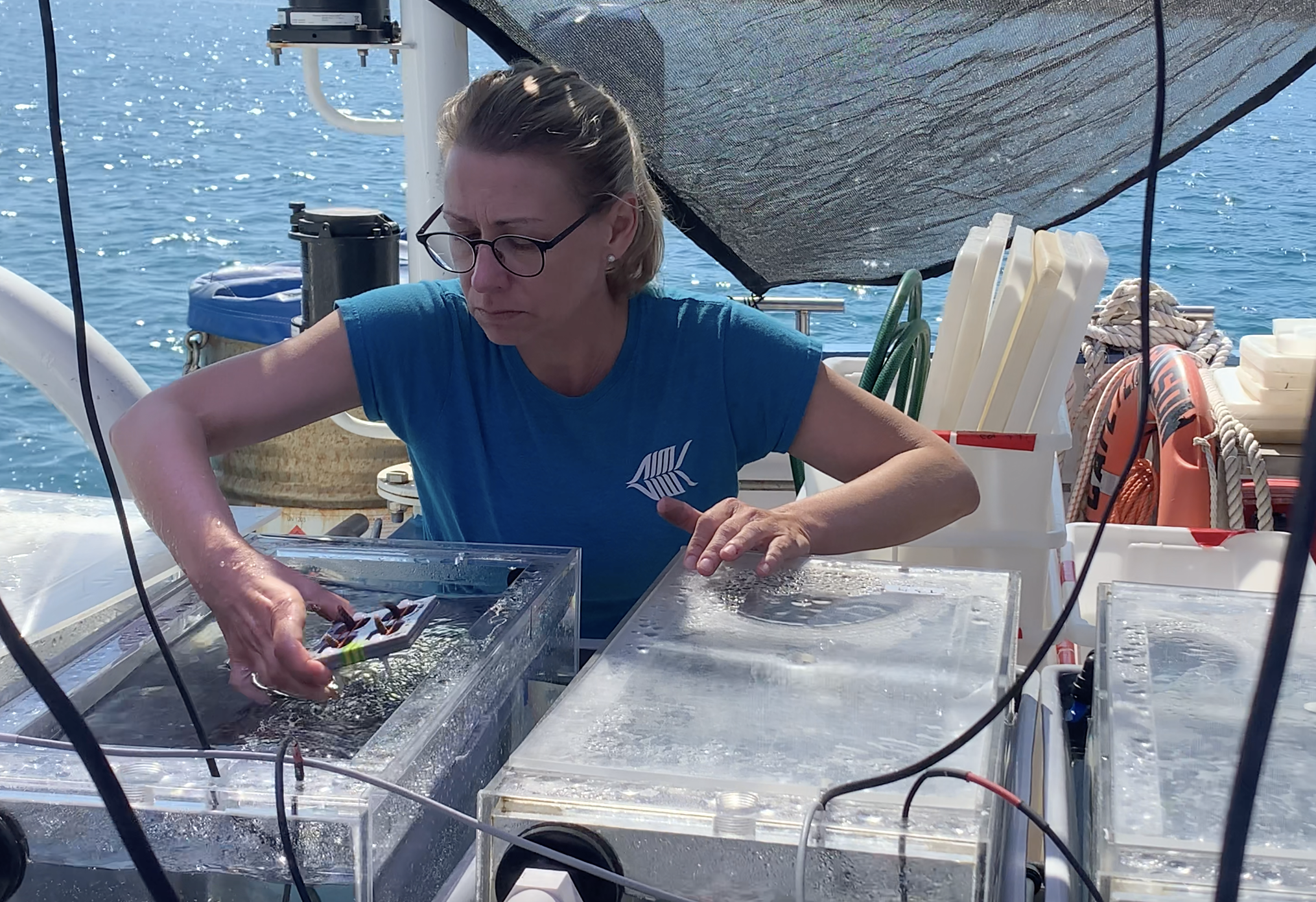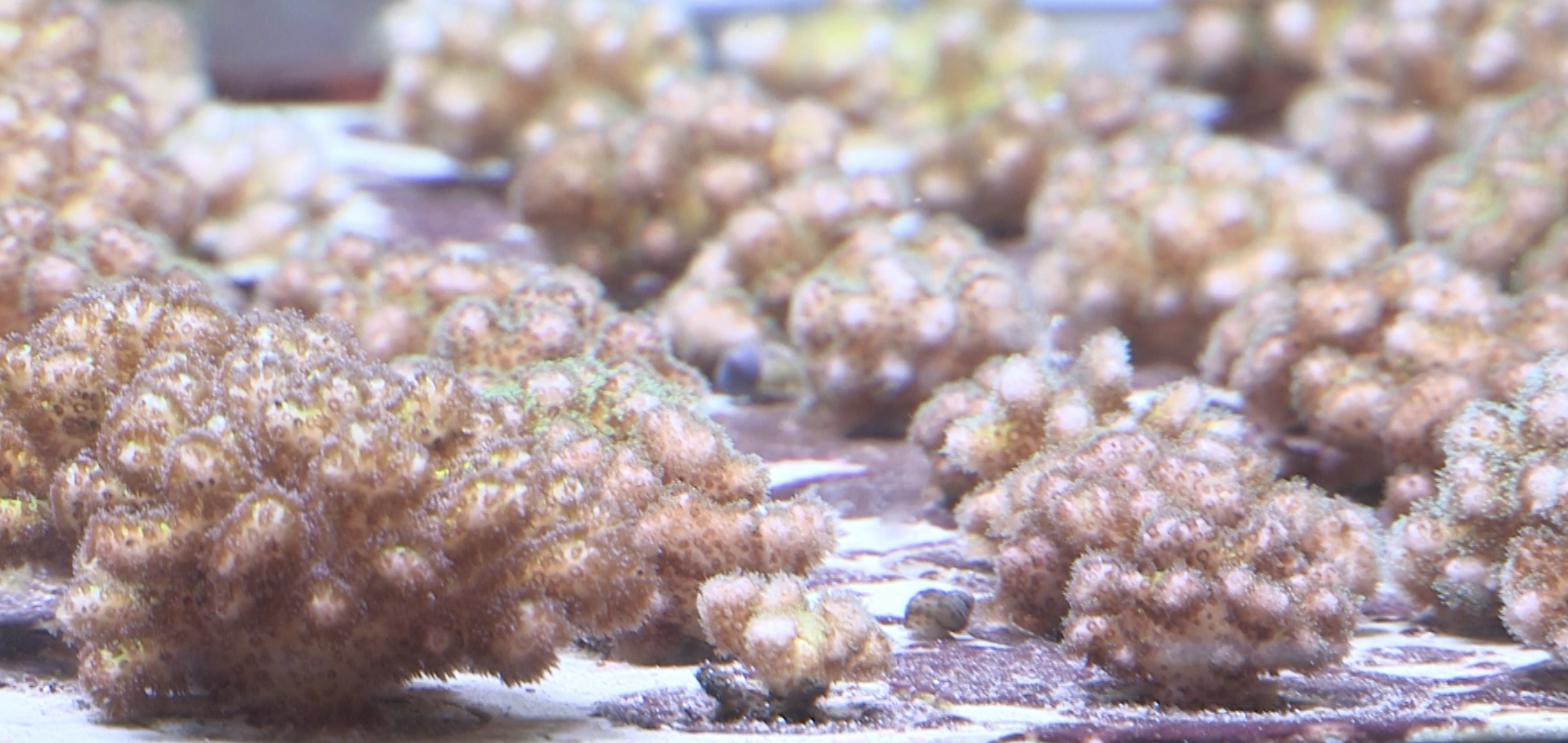Scientists from the Australian Institute of Marine Science believe the key to helping the Great Barrier Reef adapt to the impact of climate change may lie in corals that better tolerate heat.

Principal research scientist Line Bay inspects corals that have been exposed to warmer temperatures./AIMS
Principal research scientist Line Bay inspects corals that have been exposed to warmer temperatures./AIMS
"We know that not all corals are the same, so certain coral species or certain individuals within the biodiversity are more tolerant than others. So, what our work is really focused on is identifying those individuals and finding out why they are more tolerant than others," said Line Bay, a senior principal research scientist at the Australian Institute of Marine Science.
Researchers say climate change is warming our oceans, leading to more frequent mass coral bleaching events, giving corals less time to recover.

The Great Barrier Reef has experienced three mass bleaching events since 2016. /Biopixel
The Great Barrier Reef has experienced three mass bleaching events since 2016. /Biopixel
"Bleaching is the phenomenon that occurs when corals turn completely white," said Bay. "They actually lose these small algae that live inside their bodies that they rely on for food, so they lose these algae when temperatures are too high, and that means that they can starve or die.”
There have been three mass bleaching events on the Great Barrier Reef since 2016.
"The changes that we are causing right now are unprecedented in their speed, so natural evolutionary processes are unlikely to be able to keep pace," said Katharina Fabricius, another senior principal research scientist at the Australian Institute of Marine Science.

Scientists are using genetics to help corals become more heat tolerant. /CGTN
Scientists are using genetics to help corals become more heat tolerant. /CGTN
Scientists are selectively breeding the heat-tolerant corals and using genetics to help populations adapt to more extreme conditions.
"By taking advantage of the natural biodiversity and the natural genetic diversity, we are hoping to be able to inject a little bit more genetic variability into those millions of corals that are up there in order to help them to adapt to climate change," said Fabricius.
(If you want to contribute and have specific expertise, please contact us at nature@cgtn.com.)

